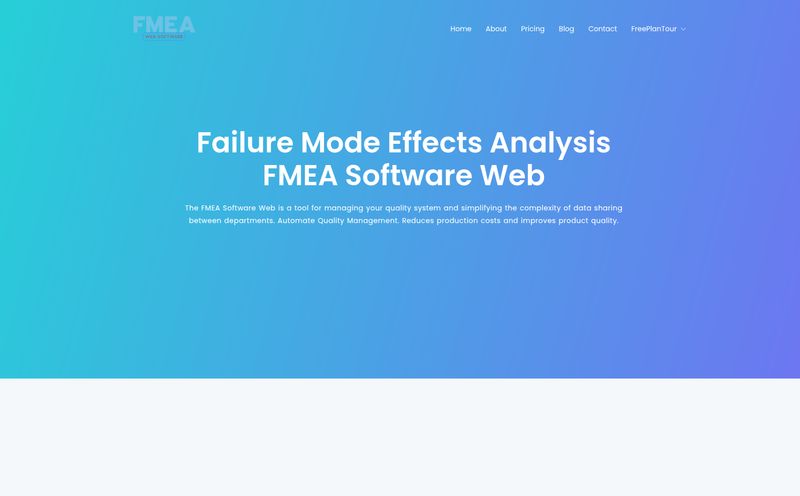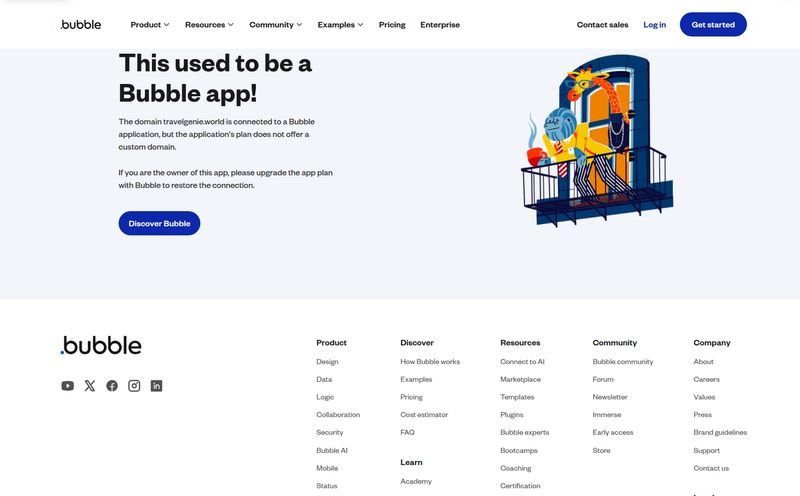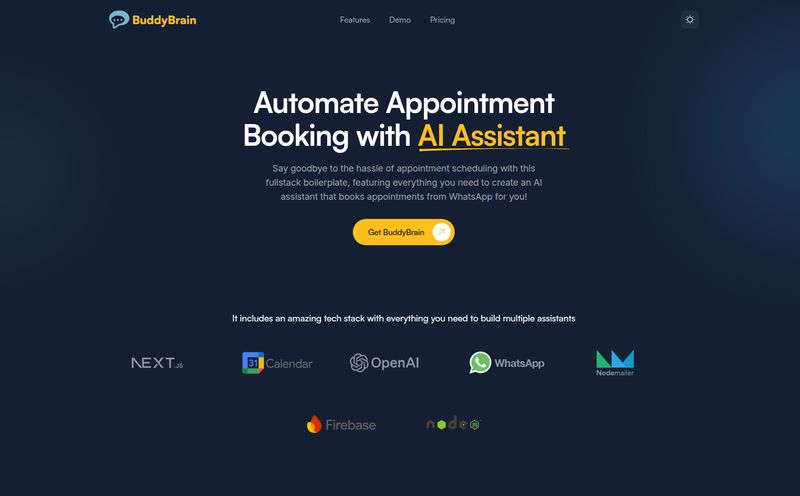My browser tabs are a warzone. I’ve got ChatGPT open in one, Claude in another for some creative flair, and maybe Gemini for a quick fact-check. It’s a constant juggling act, a digital circus of copy-pasting and context-switching that burns through time and mental energy. For years, I've been saying that the next big thing in AI won't be another slightly-smarter model, but a tool that wrangles all these wild, brilliant digital minds into something genuinely useful. Something cohesive.
So, when I first heard about a platform called Omniverse, my ears perked up. Not NVIDIA's 3D platform, mind you—we'll get to that later—but something different. Something that promised to be a centralized hub for creating your own custom AI assistants. A single dashboard to rule them all. The promise is huge. But promises are easy. The real question is, can it deliver?
So What Exactly Is This Omniverse Thing?
At its heart, Omniverse isn't trying to build a better AI from scratch. That's a monumentally expensive and difficult game. Instead, it's taking a smarter approach. It acts as a conductor for an orchestra of existing AI geniuses. Think of it as a sophisticated control panel that lets you plug in heavy hitters like OpenAI’s ChatGPT, Anthropic’s Claude, Google’s Gemini, and even more specialized models like DeepSeek and the open-source hero, OLLaMA.
You’re not just chatting with them through a prettier window. The whole point is to build a bespoke AI assistant, a personalized agent designed by you, for you. It’s a layer of user experience and customization sitting on top of the raw power of these large language models. The idea is to move beyond generic prompts and create an AI that understands your specific needs and workflows because you built it to do just that.

Visit Omniverse
The Real Magic is in the Extensions
Okay, so a unified dashboard is nice. I’m all for less tab-switching. But what really caught my eye in the initial information is the concept of extensions. This is where Omniverse potentially moves from being a convenience to a game-changer. Most chatbots, for all their smarts, are stuck in their text-box. They can talk the talk, but they can't walk the walk. They can’t do things.
Extensions are like giving your custom-built AI hands and feet to interact with the web. The examples given are things like an online shopping plugin or a language-learning module. Let that sink in for a second. Imagine you’re researching a new camera. Instead of asking your AI for recommendations and then opening ten new tabs to find reviews and prices, your assistant could be configured to do that for you. It could browse shopping sites, compare prices, and maybe even add the best option to your cart. That's a different class of tool entirely.
This is a step toward what many of us in the tech space have been talking about for a while: agents that perform tasks, not just answer questions. It’s a subtle but massive shift in function.
Juggling AIs: The Good, The Bad, and The Complicated
Of course, an ambitious idea like this comes with its own set of challenges and benefits. It’s not all smooth sailing. On one hand, the potential is incredible. You could create a "Marketing Maven" assistant that uses Claude for writing eloquent ad copy and Gemini for analyzing market trends, all in one seamless interface. No more jumping around.
But then there's the other side of the coin. The platform is, by its nature, dependent on these external AIs. If OpenAI's API has a bad day, a part of your custom assistant is going to have a bad day too. That's a dependency you have to be comfortable with. There's also the potential for complexity. Juggling multiple AI agents and a stack of extensions sounds powerful, but can it be managed without needing a degree in computer science? The success of Omniverse will hang on how well its “enhanced UI” actually simplifies this process. I'm cautiously optimistic.
Here’s a quick breakdown of how I see it stacking up against the old way of doing things:
| Feature | The Old Way (Multiple Tabs) | The Omniverse Way |
|---|---|---|
| Workflow | Copy-paste between ChatGPT, Claude, etc. A real pain. | Integrated agents working together in one place. |
| Capability | Limited to what the base model can do in its chat window. | Enhanced with extensions (shopping, learning, etc). |
| Customization | Basic system prompts, if you're lucky. | Build a truly specialized assistant from the ground up. |
| Experience | Clunky, inefficient, "tab-hell." We've all been there. | A cleaner, supposedly superior UI. |
The Million-Dollar Question: What's the Price?
And now for the question on everyones mind. What’s this going to cost? Well, here’s the thing: nobody knows. Right now, there is no public pricing information or a pricing page available for Omniverse.
In my experience, this usually means one of two things. The platform is either in a very early, private beta phase, being tested by a select group of users. Or, the creators are still figuring out the business model. Will it be a monthly subscription? Will it be a freemium model with premium extensions? Or maybe a pay-as-you-go system tied to the API calls your assistant makes? My money's on some form of subscription, but that's just a guess. For now, we'll have to wait and see. This lack of info just adds to the mystique, I suppose.
Who is Omniverse Actually For?
Even without a price tag, I can already see who might be interested in a tool like this. It's not just for AI nerds like me.
- The Power User or Developer: This is the most obvious one. Anyone who wants to build sophisticated AI workflows without having to code an entire backend from scratch will be drawn to this. It’s a high-level abstraction that could save tons of development time.
- The Small Business Owner: Imagine a restaurant owner creating an AI assistant that not only answers questions about the menu but also integrates with their reservation system. Or an ecommerce store with an AI that provides product support by pulling data directly from their catalog via an extension. That's a serious upgrade.
- The Dedicated Hobbyist: This is the person who just loves to tinker with the latest tech. The idea of building a personalized AI to help manage their smart home, organize their research, or even help them learn a new language is incredibly appealing.
Basically, anyone who feels the limitations of current off-the-shelf chatbots and wishes they could do more is a potential user here.
My Final Thoughts (For Now)
So, am I sold on Omniverse? I'm sold on the idea. The execution is where the battle will be won or lost. The concept of a unified, extensible AI platform is exactly what the industry needs to move from novelty to genuine productivity. It shifts the focus from the LLMs themselves to the practical application layer—the part that actually helps us get things done.
It has the potential to be the 'Figma for AI' or the 'Zapier for agents,' a central hub where real work happens. But it all hinges on that user experience being as good as promised. If it's intuitive and powerful, Omniverse could be a quiet revolution. If it's clunky and confusing, it'll be just another interesting idea that didn't stick the landing. Am I going to be keeping a close eye on this one? You bet I am. I’ve already bookmarked it for a follow-up.
Frequently Asked Questions about Omniverse AI
- What is Omniverse AI in simple terms?
- It's a platform that lets you build your own custom AI assistant. Instead of having its own AI, it lets you connect to popular models like ChatGPT and Claude, and then add special abilities, called extensions, so your assistant can perform tasks like shopping online or helping you learn a language.
- Does Omniverse have its own AI model?
- No, it doesn't. It's a platform that integrates with other companies' AI models. It acts as a control center to manage and combine them.
- What kind of extensions does Omniverse support?
- Early information points to extensions for tasks like online shopping and language learning. The idea is that these extensions will allow your AI assistant to interact with other websites and services to complete tasks.
- Is Omniverse free to use?
- Currently, there is no public pricing information available. This often suggests the tool is in an early testing phase (beta) and a pricing model hasn't been announced yet.
- Which AI models can I use with Omniverse?
- The platform supports a range of popular and powerful AI models, including ChatGPT, Claude, Gemini, DeepSeek, and OLLaMA.
- Is this the same as NVIDIA Omniverse?
- Great question, and no, it is not. It's an easy mistake to make. NVIDIA Omniverse is a platform for creating and simulating 3D worlds and metaverse applications, aimed at creators and developers in the 3D space. The Omniverse AI platform discussed here is focused on creating personalized text-based AI assistants.
Reference and Sources
- Information on AI Models: OpenAI's ChatGPT, Anthropic's Claude, Google's Gemini
- Open Source Model Info: OLLaMA
- Specialized Model: DeepSeek
- NVIDIA's Platform (for clarification): NVIDIA Omniverse



